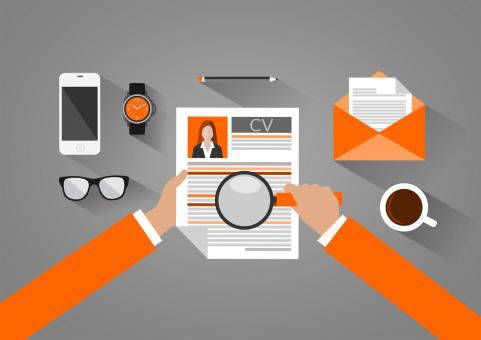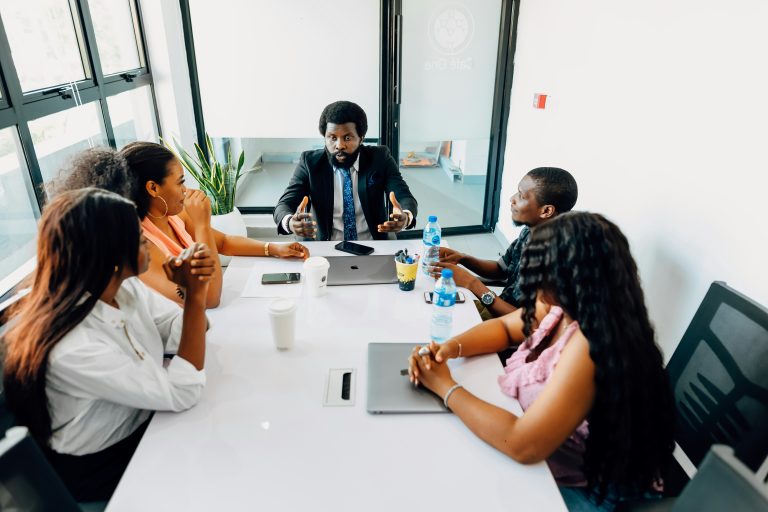AI in your Human Resource Office used to be just a buzzword in the past. People used to think of it as if it didn’t add up because, by its name alone, Human Resources (HR) should be about humans, not AI. Today, however, artificial intelligence has become a beacon of hope for the well-being of many employees.
As innovation jumps from one advancement to another, HR is no longer resistant to this helpful change. As employee mental health takes center stage in human resource management concerns, AI is now HR’s indispensable partner to help it out.
Here are some of AI’s remarkable contributions that transformed how HR works to maintain and improve employee wellness.
AI-Driven Transforming Initiatives
AI-Powered Wellness Reminders
AI-powered wellness reminders are becoming quite common in today’s workplaces. Many proactive companies now use AI algorithms to send personalized nudges to their employees or team members, encouraging and inspiring them to prioritize their well-being.
These prompts are like alarms for employees to take short breaks, practice mindfulness, or get into their yoga breaks. They work like gentle reminders that it’s time for them to engage in their fitness program and other physical wellness engagements.
For example, the AI-powered chatbot Woebot can deliver daily check-ins to employees and may offer coping strategies that are grounded in cognitive-behavioral therapy principles. It actually works like an employee’s supportive friend in your pocket, nudging you towards healthier habits and better mental well-being, all thanks to the power of AI.
Predictive Analytics for Stress Management
HR departments are now leveraging data analytics and machine learning algorithms to predict and prevent workplace stress in many companies in the United States. Most employees from bustling metropolises, with their hustle and bustle and fast-paced lifestyles, often have high and unmanaged stress levels.
That is why organizations today strategically maintain timely support and intervention in coordination with professionals like therapists or counselors in Portland, New York, Miami, and other cities.
By analyzing patterns in their employee’s behavior, such as email communication frequency, meeting attendance, and work hours, the AI can now identify if these individuals are at risk of burnout or suffering high stress levels.
It’s like the analysis capabilities of the software platform Ginger.io, which uses smartphone sensor data and self-reported information to detect any changes in behavior that may mean declining mental health.
Remote Access to Therapists or Counselors
Many AI platforms today can facilitate remote access to mental health professionals for employees. They can competently provide virtual communication channels, like specialized online platforms through which employees can effectively schedule their virtual therapy or counseling sessions with licensed professionals.
It’s actually a step up from relying solely on the “concerned” advice from coworkers who may not have the professional expertise and might even make you the talk of the town. Some applications like Talkspace can offer therapy services through text, audio, and video messages.
Additionally, AI algorithms may assist in matching employees with suitable therapists based on their preferences, needs, and availability. It can also become a more efficient and streamlined HR management tool that streamlines the process of finding and accessing mental health support for their workers.
It’s also where they’ll be able to provide better employee wellness assistance whether the team is at their desks or on a remote work setup.
Virtual Mental Health Assessments
Supporting employee wellness used to cause employees to take time away from their workstations. From lining up to get a therapy schedule to actual therapy time, including times of follow-up checkups and other related activities, a day’s absence may not be enough.
That’s why these time-efficient virtual mental health assessments powered by AI really gave so much relief and advantage to HRs in terms of costs and overall productivity. These tools empower them to detect mental health issues proactively through natural language processing and sentiment analysis. They can even analyze employee feedback or comments to pinpoint potential concerns.
For example, IBM’s Watson AI platform can scrutinize written communication, like employee emails or chat messages, to gauge their emotional well-being. If one of your employees expresses feelings of stress or anxiety, the application can flag it down for you in HR to process.
These early detection capabilities allow you, as HR, to intervene promptly, offering support or resources to employees in need. By maximizing AI for these virtual assessment activities, companies like yours can create a more supportive work environment and address mental health challenges in the bud. This avoids more problems later on, ultimately fostering employee well-being and productivity.
Chatbots for Mental Health Support
One mental health initiative that empowers HR today is chatbot technology, or AI-powered tools that offer immediate assistance to employees dealing with mental health issues. These advanced bots use natural language processing to understand and respond to users’ messages.
It’s like how people used to confide in each other–employees can also confide in these bots, receive emotional support, and access coping resources confidentially. One mental health chatbot, Wysa, provides evidence-based techniques like cognitive behavioral and dialectical behavior therapy that can help users manage their emotions, like fears and worries.
By maximizing these chatbots in the workplace, employees will have a convenient and more accessible way to deal with their mental health concerns, promoting their well-being and resilience in all their activities.
Sentiment Analysis in Employee Feedback
In today’s dynamic world of HR, AI-powered cutting-edge sentiment analysis tools can work magic as they gauge employee sentiment and satisfaction levels. These tools can analyze feedback from surveys, performance reviews, and engagement platforms to identify trends and concerns related to mental health and well-being.
For instance, one platform called Culture Amp employs AI algorithms to analyze open-ended employee feedback or posted comments. It can provide actionable insights to HR teams and help them enhance workplace culture and morale.
By leveraging these AI tools for sentiment analysis, HR departments may gain valuable insights into their employee’s mental wellness, enabling them to implement targeted and helpful interventions. This will help promote a more supportive work environment for the whole organization.
Endnote
In the ever-evolving HR arena, AI-driven innovations are not mere tools but transformative allies, reshaping the way employers understand and nurture employee well-being.
It may be highly advanced, but it still abides by the age-old rule of taking good care of labor for capital to thrive and maintain that delicate balance of prosperity and progress in the ever-evolving landscape of the nation’s economy.
Guest writer.














